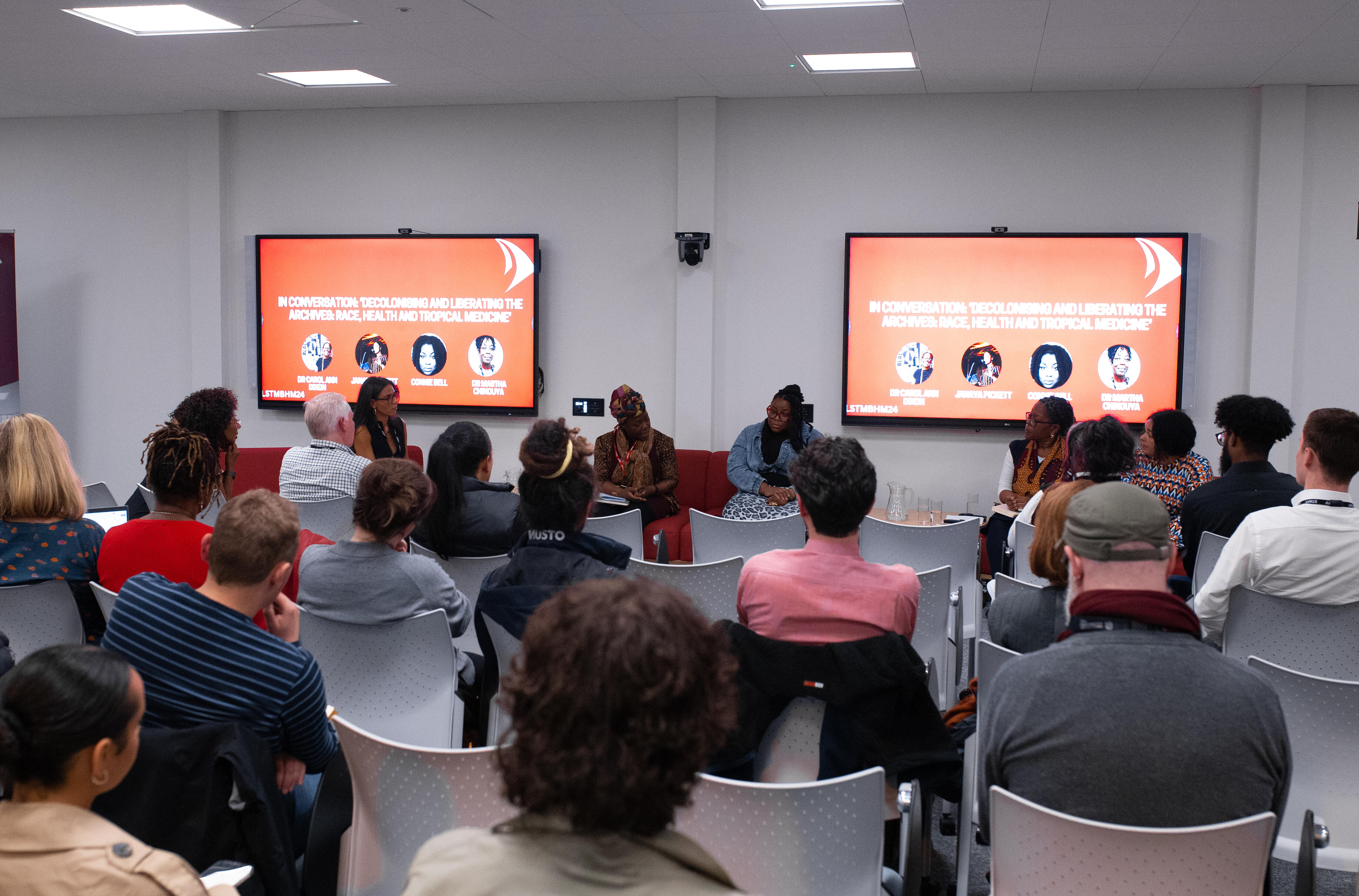
Experts in decolonising and democratising historical archives came together for a discussion at Liverpool School of Tropical Medicine’s flagship Black History Month event.
Guests had the chance to view items from LSTM’s collections, the majority of which have never been viewed publicly.
'Decolonising and Liberating the Archives: Race, Health and Tropical Medicine' took place as LSTM funds a project to address the institution’s colonial history through the development of a rigorous public record of its past, including an independent academic research project and activities to digitise its archive for wider access.
Organised by LSTM’s Equity, Diversity and Inclusion (EDI) Team, the panel event and Q&A featured four leading experts in decolonising education and archives, co-curation and global health – Dr Carol Ann Dixon, Connie Bell, Janaya Pickett and LSTM’s Dr Martha Chinouya. More than 100 people attended the event in person or online.
You can watch the recording of the event by visiting YouTube.
Samia Benbrih, LSTM’s EDI Manager and event organiser, said: “As an institution founded upon the wealth generated from Liverpool's transatlantic slave economy, the exploitation of West Africa under the violent colonial rule of King Leopold II and to uphold the British empire, it's critical that we seek to understand how to appropriately decolonise our archives in order to recount a truthful, authentic version of our history. Today's panel, made up of four expert women, supports us on that journey.
“Decolonisation of our archives links to enhancing our curriculum, teaching and research practice and connectivity with Black communities and those affected by legacies of slavery and colonialism. As we look to the future, this work is not only restorative but central to the sustainability of our mission. We hope to deconstruct historical barriers for Black communities, creating tangible equitable opportunities and co-producing the process of truth via polyvocality and reciprocal dialogue.”
After the panel discussion, guests had the opportunity to view items from LSTM’s collections, and to explore the Tropical Medicine Time Machine, an interactive tour of LSTM’s past and its current work, created as part of the National Lottery Heritage Fund-supported project 'LSTM – Past, Present Future' to commemorate the institution’s 125th anniversary.
The event was introduced by Professor Bertie Squire, LSTM’s Pro Vice-Chancellor for Partnerships, who welcomed the panellists and guests.
He said: “Our journey to confront, explore and address our institutional colonial past has accelerated since 2022, in large measure thanks to many of the people in the room here today, and it’s something we remain very much committed to. I’m pleased to confirm that since last year’s Black History Month event, we’ve committed funding to support a colonial history research project for which recruitment is underway, and appointment of an external advisory panel and digitisation of our archive collections. We’re proud to be partnering with fellow institutions and organisations to seek further funding to support the sustainability of this work and we look forward to updating staff, students, partners, and LSTM communities on progress.
“Today’s event seeks to create a platform for an expert-led discussion on what decolonisation of the archives means, the interrelationship between race, health and tropical medicine and how decolonial archive work can redress historical injustices for black communities today and for the future.”
History and heritage project
A two-year independent research project at LSTM will seek to create an account of the institution’s historic roots, beginning in 1898 with a donation by Sir Alfred Jones, a shipping magnate who made significant profits from colonial exploitation in various African countries.
The outputs of the project will inform conversations about the institution’s colonial legacies and the future development of a history and heritage strategy.
An external advisory panel will be appointed to steer and guide the research team in their work. This panel will consist of historians, experts in related fields and representatives of communities whose histories relate to colonialism